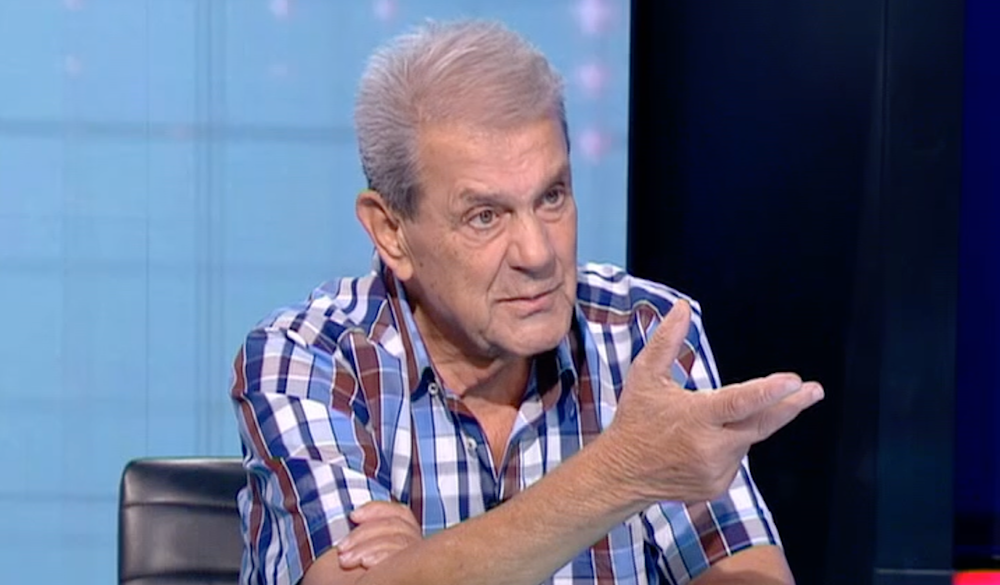Wakim: Disarmament may invite a new Sabra Shatila massacre in Lebanon
Former MP Najah Wakim told Al Mayadeen that pressuring Lebanon’s Resistance to surrender arms would leave the country vulnerable to massacre.
-

Former Lebanese MP Najah Wakim speaks to Al Mayadeen in a televised interview on September 16, 2024, in Beirut, Lebanon. (Al Mayadeen)
In a televised interview on Al Mayadeen, former Lebanese MP Najah Wakim issued a stark warning: demanding that the Resistance hand over its weapons to state authorities risks exposing Lebanon to violence comparable to the Sabra and Shatila massacres. Wakim framed the debate over arms as not merely domestic policy but an issue of sovereignty and survival.
The Sabra and Shatila massacre took place between September 16 and 18, 1982, during the Israeli occupation of Beirut. After Israeli occupation forces, led by Ariel Sharon, encircled the Palestinian refugee camps of Sabra and Shatila, they faciliated the entry of allied Lebanese militias. Over the course of three days, the militias slaughtered hundreds of Palestinians and Lebanese civilians, mostly women, children, and the elderly. Israeli forces controlled the perimeter, preventing civilians from fleeing and aid from entering. The massacre remains one of the darkest chapters of the Lebanese Civil War and is widely seen as a consequence of disarming Palestinian fighters under international guarantees following the Palestinian Liberation Organization's (PLO’s) evacuation from Beirut weeks earlier.
Wakim spoke to Al Mayadeen on the anniversary of the massacre, cautioning that Lebanon could face a similar tragedy today if the Resistance were to be disarmed.
On the LAF’s independence
Wakim rejected the premise that Lebanon today has an independent, fully sovereign army. He argued that the state authority claimed to exercise exclusive control over weapons is in practice subordinated to external powers, notably the United States and, by extension, "Israel", and questioned whether turning Resistance arms over to such an authority would truly protect Lebanese civilians.
"The Americans are blocking the arming of the Lebanese Army," Wakim said.
"The real question is: why are the weapons it (the Lebanese Armed Forces) obtains from the Resistance not delivered to its forces, but instead destroyed?"
Read more: Lebanese court to release dangerous convicted 'Israel' spy: Report
Historical warning: Sabra and Shatila
Pointing to history, Wakim recalled how after previous disarmament episodes the Resistance lost its means of defence, civilians were left exposed and atrocities followed. He said that disarmament led fighters to flee and arms to be seized.
"If the Resistance surrenders its weapons, will we face stability or a new Sabra and Shatila massacre?" Wakim highlighted.
Read more: Israeli aggression injures 8 civilians, 4 children in South Lebanon
Popular legitimacy
Wakim defended the Resistance as a popular, defensive phenomenon born from Palestinians’ insistence on staying on their land and from communities’ spontaneous defence initiatives that later became organised. He said resistance operations gave Lebanese people hope and insisted that, despite setbacks, the Resistance has not been defeated.
Critisicm of the Doha summit
Wakim dismissed proposals that he said would sow division inside Lebanon if advanced without broad consensus. He criticised the Doha summit as producing symbolic language rather than firm decisions, and described moves to freeze relations with "Israel" as weak measures that fall short of meaningful action.
"The Doha summit was ridiculous because it produced constructive clauses, not decisions, and the weakest of faith was freezing agreements with the entity," he stressed.
Wakim urged that any proposal touching on weapons, security arrangements or political settlements be tabled with all Lebanese parties present. He called for a sovereign security strategy that cannot be imposed from abroad and warned that reliance on external patronage would undermine national dignity and safety.
Read more: US willing to give Lebanon away to 'Israel': Hezbollah's Sheikh Qassem

 4 Min Read
4 Min Read








